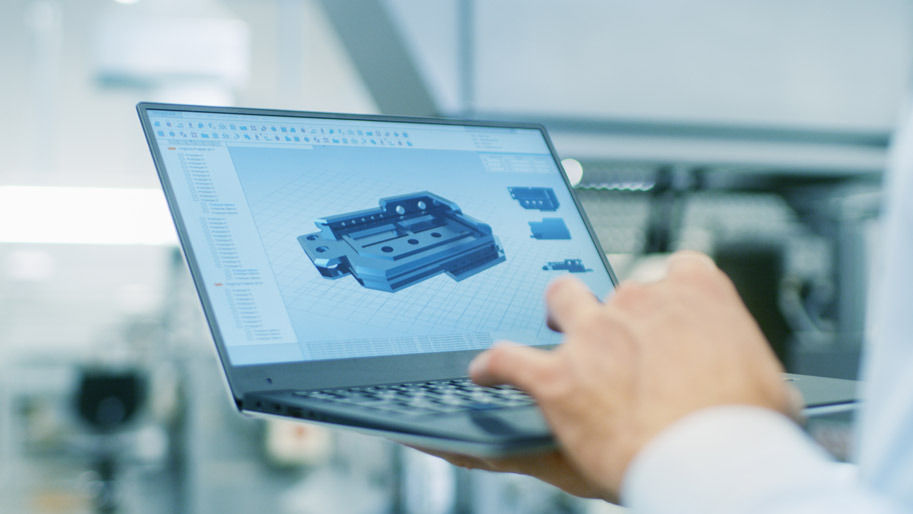Industry 4.0: the Future of Production
 © iStockphoto
© iStockphoto
What will be the consequences of the fourth industrial revolution, which – driven chiefly by digitization – is playing an increasingly important role worldwide? Dubbed Industry 4.0, it will entail, on the one hand, smart, digitally interlinked systems in which production is seamlessly interwoven with cutting-edge information and communication technologies. At the same time, it will present opportunities for reorganizing work. Machines, for example, will be able to perform arduous physical tasks, and more flexible and family-friendly work-time regulations will become possible.
While progress in the past made great leaps forward thanks to innovations such as the steam engine, conveyor belt and the use of electronics and information technology, Industry 4.0 today is characterised by smart factories. These are based on digitally networked systems that allow, for the most part, an autonomous production process in which people, machines, systems, logistics, and products communicate and cooperate directly with each other. This makes production more efficient and more flexible. When all information is available in real time, a company can, for example, react in good time to the availability of specific raw materials. Production-flows throughout the company can be designed so as to save resources and energy.
Connected via the Plattform Industrie 4.0
The German Plattform Industrie 4.0 promotes dialogue about the digitization of production processes – and emphasizes the importance of cross-border exchange: it cooperates, for example, with the Japanese Robot Revolution Initiative (RRI) and the Industrial Internet Consortium (ICC) co-founded by the US companies IBM and General Electric. The German-French-Italian cooperation partners in Plattform Industrie 4.0, Alliance Industrie du Futur and Piano Industria 4.0, are, among other things, collecting together example applications from all three countries in a bid to make digitization even more accessible for small and medium-sized enterprises.
Professor Dieter Kempf, president of the Federation of German Industries (BDI) and management member of Plattform Industrie 4.0, stressed the following at the German government’s 2017 Digital Summit:

“The possibilities of the digital transformation for the economy and everyday life of society that the term Industry 4.0 encompasses offer enormous opportunities for increased productivity, competitiveness and new business models. We must exploit this potential – and the best way to do this is in an exchange with international partners.”Prof Dieter Kempf, President of the Federation of German Industries
Register for our Newsletter!
The DWIH Tokyo Newsletter provides timely information on German-Japanese funding programs, event invitations and news from research and innovation. Sign up now!
